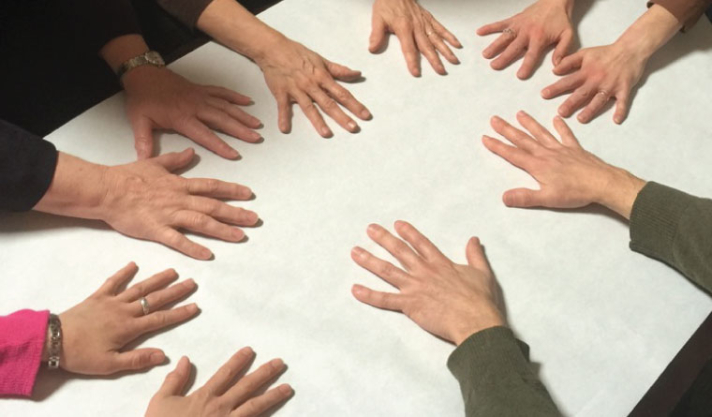
A Canadian Institute for Advanced Research (CIFAR) study released last week reports that belonging to multiple groups contributes more to personal self-esteem than having a large network of friends. This is particularly the case when groups provide a basis for social identity, that is, when they are considered by people to contribute to their sense of who they are.
One of the authors’ key points is that groups provide “self-esteem-boosting” benefits that interpersonal ties alone may not; namely, meaning, connection, support and a sense of control over our lives. “Groups often have rich value and belief systems, and when we identify with groups, these can provide a lens through which we see the world,” lead author Jolanda Jetten states in a press release.
| “As governments cut budgets, not-for-profits reduce programs and businesses contract, the need for an alternative source of production becomes clear.” — John McKnight |
|
The research touches on a point — essentially the value of associational life — that author John McKnight explores in-depth in a paper, The Four-Legged Stool. John proposes that associational life, which he describes as groups of citizens pulled together through common consent around a shared concern or interest, is the “fourth leg” of society, the other three being business, government and not-for-profits.
John makes a profound point that through associational life citizens take power by making power through community action. Some unique and core contributions of associations as identified by John include that they:
- Not only provide daily caring support, but also have unique capacities to respond in times of great stress and crisis
- Provide a collective form of problem-solving
- Offer solutions that provide a valuable counterbalance or alternative to the narrow world of technical answers
- Provide citizens one of the two means by which they can use their political power in a democracy — the other being voting
- Proliferate to incorporate people of all conditions, capacities and interests
- Multiply the space for leadership as associations proliferate
- Provide a vital mediating function in societies dominated by institutions
- Provide the basic context for the formation and expression of citizen opinion and values
- Act as the seedbed from which more formalized systems grow.
The notion of associational life offers a way to think about the Peterborough Dialogues experience that Axiom News has introduced in our hometown. The dialogues are centred on people coming together through common consent around a broad shared interest, namely the thriving of our community.
“I’m incredibly drawn to the energy in associational life,” Axiom News founder and CEO Peter Pula says. “As we’ve waded into the Peterborough Dialogues the liberation of working directly with citizens, and breaking free from the constraints of institutional forces, has been amazing.”
John makes the case that the need for associational life has become vivid. “Our focus on the three institutional legs (government, business and not-for-profits) has obscured the presence and vitality of the fourth,” he writes.
“As governments cut budgets, not-for-profits reduce programs and businesses contract, the need for an alternative source of production becomes clear.
“Therefore, the future of our well-being depends on our making visible and supporting associational life.”
Based on this latest CIFAR report, John’s document and our own experiences, we see growing reason to learn more about associational life and how to enliven it, for our personal, community and economic well-being.
You can comment on this story below, or e-mail michelle(at)axiomnews.com.





